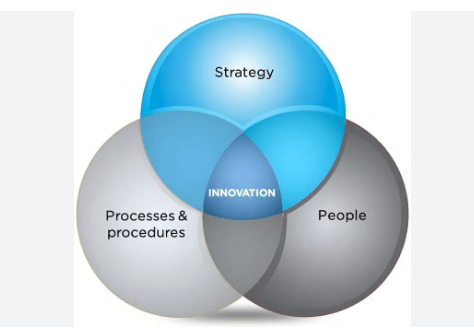Gmail: Revolutionizing Email Communication

Table of Contents
Introduction
Since its launch in 2004, Gmail has transformed the landscape of email communication. Offering an intuitive interface and a suite of powerful features, G-mail quickly became one of the most popular email services worldwide. It is also one of the Google Products.
It seamlessly integrates with the broader Google ecosystem, making it indispensable for personal and professional use. This article explores G mail’s development, key features, and its impact on communication.
The Birth of Gmail
Google mail was unveiled on April 1, 2004, surprising the world with its 1GB of free storage—remarkably large at a time when other services offered just a few megabytes.
This initial offering attracted attention and set G-mail apart, not just for its generous storage but also for its clean, efficient design. The service started as an invite-only platform, creating a buzz and sense of exclusivity that boosted its early popularity.
Key Features and Innovations

Generous Storage and Search Capabilities
G mail initially captured users’ attention with its 1GB of storage, which has now expanded to 15GB, shared across Google Drive and Google Photos.
This substantial storage capacity allows users to archive large volumes of emails without worrying about space constraints.
Additionally, Google mail advanced search functionality, leveraging Google’s search technology, enables users to quickly locate specific messages, attachments, or contacts, enhancing productivity.
Conversation View
G-mail’s “conversation view” was a game-changer in email management.
By grouping related emails into threads, this feature helps users keep track of ongoing conversations, making it easier to navigate and manage their inboxes.
This innovation reduces clutter and improves the user experience by providing a clear and organized view of communications.
Spam Filtering and Security

Google mail is renowned for its robust spam filtering capabilities. Utilizing advanced algorithms, Gmail effectively filters out unwanted and potentially malicious emails, keeping users’ inboxes clean and secure.
Additionally, G mail offers comprehensive security features, including two-factor authentication and phishing detection, ensuring that users’ accounts and data remain protected.
Integration with Google Workspace
One of Gmail’s most powerful aspects is its integration with Google Workspace (formerly G Suite), which includes applications like Google Calendar, Google Drive, and Google Meet.
This integration allows users to manage schedules, share files, and conduct virtual meetings seamlessly from within their G-mail interface. For businesses, this integration is invaluable, providing a cohesive suite of tools that enhance productivity and collaboration.
Smart Features and AI Integration
Google mail leverages artificial intelligence to streamline the email experience. Features like Smart Reply and Smart Compose use machine learning to suggest quick responses and help users compose emails efficiently.
These AI-driven tools save time and improve the accuracy of communication, making Gmail not just a passive email service but an active assistant in managing correspondence.
Gmail for Business: A Professional Tool

Gmail’s capabilities extend far beyond personal use. As part of Google Workspace, G-mail offers businesses custom domain email addresses, enhanced security options, and advanced administrative controls.
This makes it an ideal platform for companies looking to maintain professional communication standards while benefiting from the reliability and infrastructure of Google.
The Impact of Gmail on Communication
Google mail has fundamentally altered how people communicate by offering a reliable, user-friendly platform with extensive features. Its labels, filters, and priority inbox help users organize and prioritize emails, making it easier to manage a high volume of communications.
The availability of G mail on mobile devices and across various platforms ensures that users can stay connected and manage their emails anytime, anywhere.
Privacy and Ethical Considerations
While G-mail provides numerous benefits, it also raises important privacy considerations.
Google’s use of data for advertising purposes has been a topic of debate, though the company offers transparency and controls for users to manage their data.
Google has implemented privacy settings and security measures to protect user information, addressing concerns while providing a valuable service.
Conclusion
Gmail has evolved into a comprehensive communication platform, essential for both personal and professional use. Its innovative features, robust security, and seamless integration with other
Google services have established it as a leading email provider. As technology evolves,
Gmail continues to innovate, enhancing the way we communicate. Whether for managing personal correspondence or supporting business operations, Gmail remains a cornerstone of modern digital communication.
You May Also Like

Maica Diaz, a 20-year-old passionate writer and digital marketer, is known for her ability to create compelling narratives and impactful digital campaigns. With a deep love for storytelling, she excels in crafting engaging content across various niches, including lifestyle, travel, technology, and business. As a skilled digital marketer, Maica effectively uses social media platforms, SEO strategies, and data analytics to drive online engagement and growth. Her innovative approach and dedication to both writing and marketing make her a rising star in her field.
